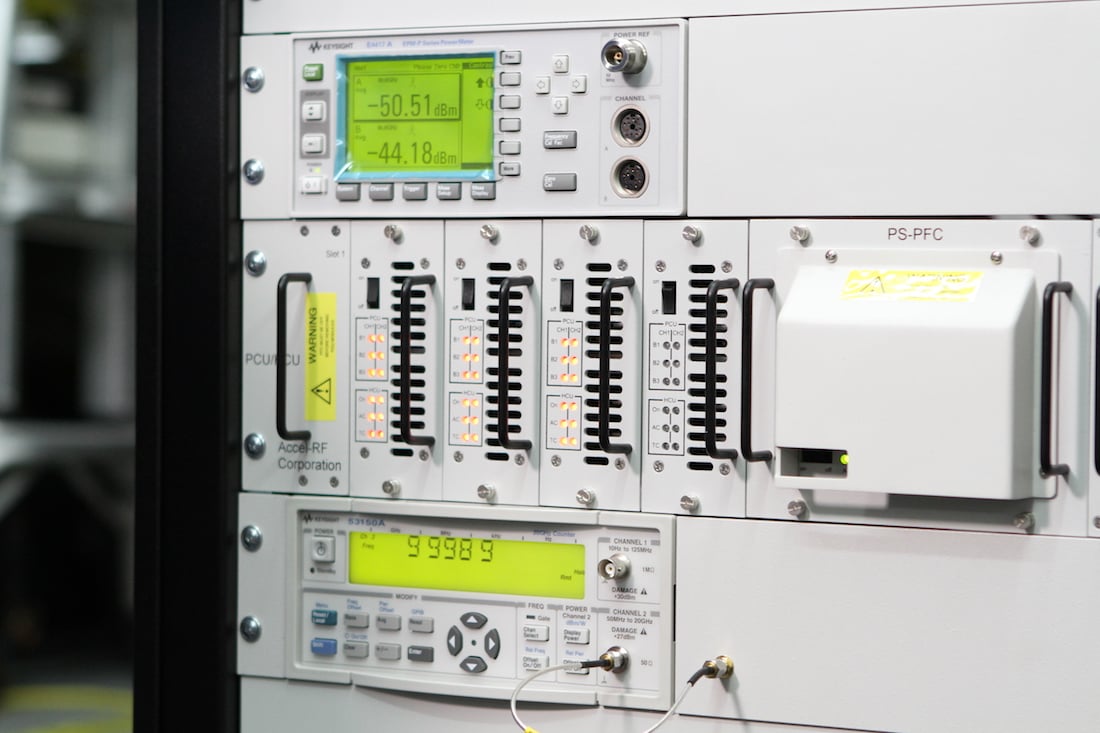The electronic semiconductor market is experiencing a growth spurt. New and emerging markets like 5G, Internet of Things (IoT), artificial intelligence (AI), and others are driving integrated circuit (IC) manufacturers to produce large quantities of previously untested chips for use across a wide variety of applications.
While this boom is good news for the chip industry as a whole, the new demands put pressure on individual companies to meet multiple benchmark qualifications for each device they produce. Manufacturers have to test each IC slated for use in numerous products to the standards of each industry.

The expense of purchasing and maintaining the multiple pieces of test equipment needed to run all the required tests adds up quickly. Companies that attempt in-house testing development typically struggle to keep up with the rapid pace of the changing and new uses for each device. Whether the company purchases what it needs or builds its own, it usually results in abandoned outdated equipment filling up valuable lab space.
So what is the solution to ensure industry standards compliance for a product that meets the needs of several market spaces? A unique approach developed by Accel-RF is as elegant as it is economical: a modular design for device testing. This method allows companies to purchase one primary device testing unit and configure it as needed for different testing standards by adding more economical modules. The robust software accompanying the testing platform ties everything together and provides a fully customizable way to gather multiple sets of required benchmark data.
Plug-and-Play Module Concept For Device Testing
From the outset of Accel-RF’s journey some 30 years ago, the company's innovative designs for testing equipment have earned it a leadership role in helping to set standards in multiple industries. The knowledge the company has gained working on committees hashing out reliability standards for both mission-critical and consumer devices resulted in invaluable insights into the testing needs of electronic device manufacturers.
Accel-RF’s founders saw firsthand how companies attempted to meet the performance requirements for device placement in widely disparate applications. The need to test the same device, for instance, for use in both a cell phone and a radar system, spurred the company to develop its revolutionary idea of a modular system that could handle multiple testing parameters.
In the past, manufacturers would have to implement an entirely new testbed when they needed to test for a new parameter or even repair their testing equipment. Using the plug-and-play concept allows the user to remove and replace components of the system. Meeting the growing demand for new testing requirements only requires reconfiguring the existing system.
The ability to adapt a system to meet new needs dictated by rapidly emerging technology gives companies the flexibility necessary to stay competitive in multiple markets. Now, when new uses for a device require testing with various numbers of test channels for new power levels or new frequencies, the user only has to add an inexpensive module to their existing system. This ability keeps the cost of ownership of test equipment at a manageable level while allowing the company to expand its testing capabilities as it needs to.
Robust Testing Software for Full Customization
While the modular design of Accel-RF’s hardware offers an efficient way to conduct device testing, the power of the fully developed testing software, LifeTest, makes the process nearly seamless. With the intuitive interface of the LifeTest software, the user can easily script a sequence of events to address all the test conditions for the device under test (DUT).
Again, the expert insights Accel-RF’s founders gained from intimate participation in setting industry standards informed the development of the LifeTest software.
The powerful utilities of the program include:
- Plot utility for real-time plotting of in-progress tests
- Ability to integrate data into existing databases
- Full-featured analysis tools for statistical evaluation of data including failure distributions and Arrhenius calculations
The system runs automatically after the initial step of entering the testing parameters until a failure criterion is met or the testing process ends. The software is advanced enough to allow the user to obtain and present the data needed to demonstrate reliability in the intended area of use. The Accel-RF software scripting tool is flexible enough to allow users to test for changing requirements. The reporting function can pull any result parameters needed to prove the device meets the required standard.

Range of Experience Sets Accel-RF Apart
Three decades of active participation is a long time in the electronic device test equipment industry. Technology evolves at an ever-increasing rate, such that many testing systems can become obsolete before they pay for themselves. Accel-RF systems have the distinction of longevity in an environment where that quality is rare.
The company started out providing testing equipment, primarily, for the high-stakes, high-performance military and space industries. As the wireless market has emerged and begun to build a global network infrastructure, Accel-RF customers have the ability to reconfigure their testing equipment they bought decades ago and continue using it. Myriad wireless applications – internet, automobiles, consumer electronics, point-to-point microwave or cellular base stations and more – can all use the same basic test equipment outfitted with various modules to meet their unique requirements.
Accel-RF continues to meet the needs across the spectrum of electronics industries because of its simple concept of modularizing the testing process. Years of experience meeting the needs of chip producers operating in a wide variety of markets by providing rugged, dependable and fully configurable testing solutions have uniquely qualified Accel-RF. The company is positioned to help manufacturers overcome the present wave of device testing challenges and to continue to do so in the future.



